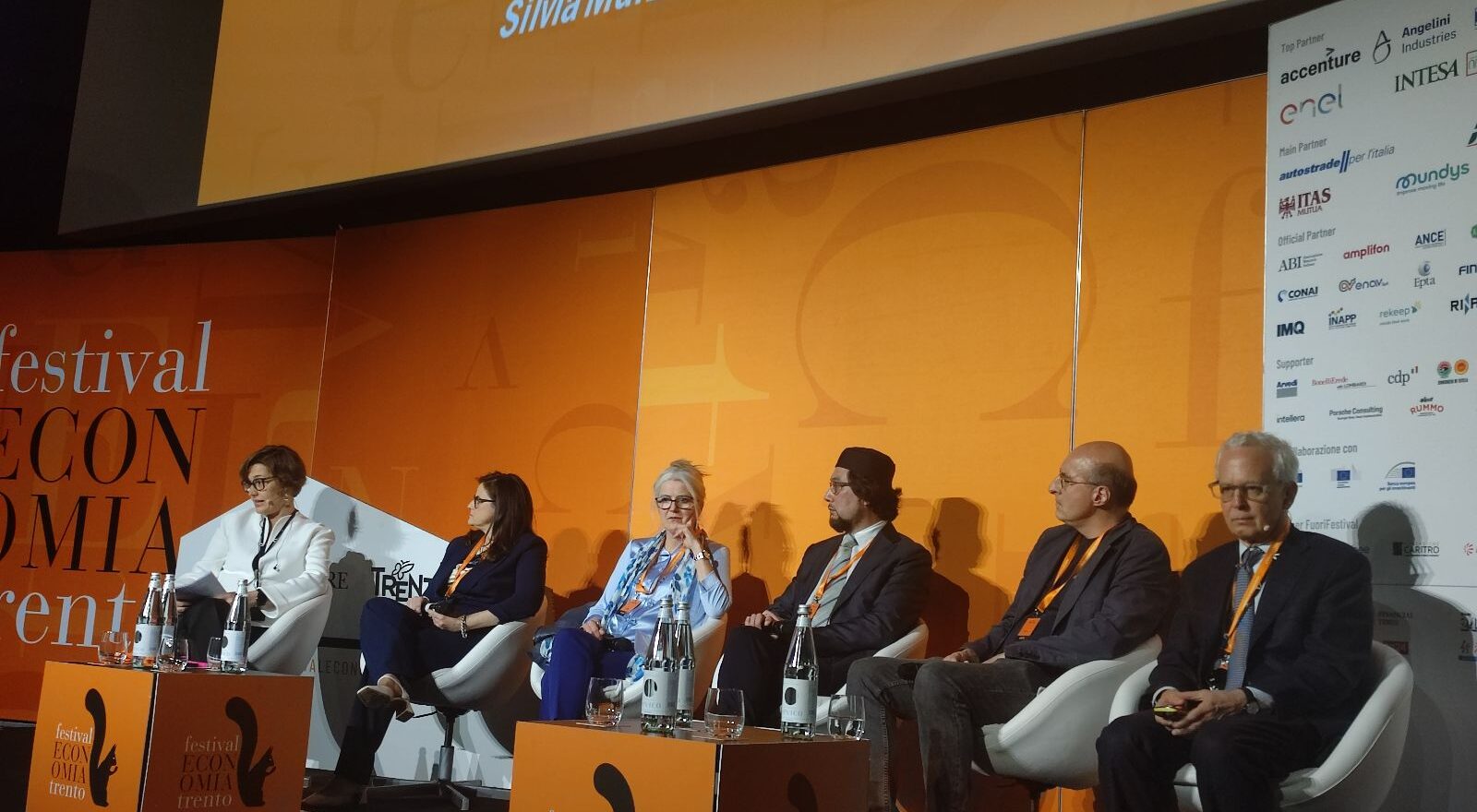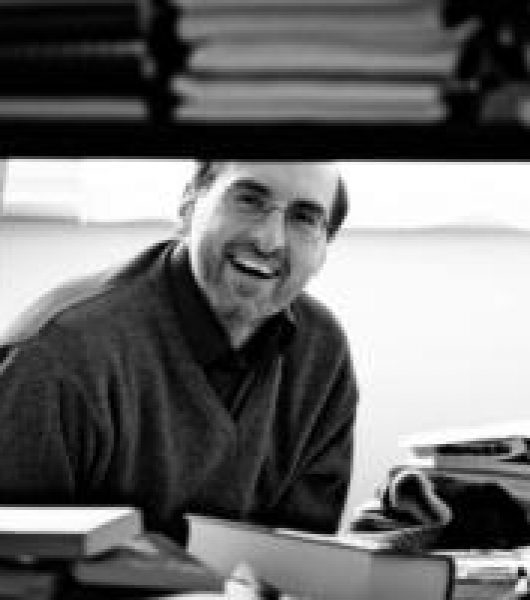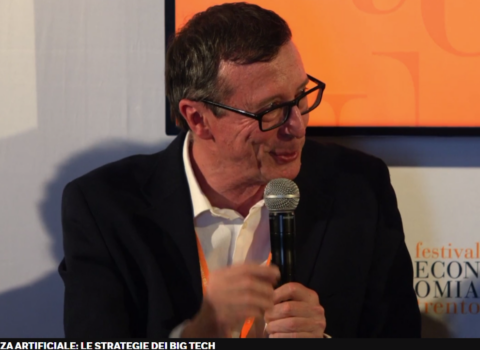
Money and Religions
The 19th Edition of the Trento Festival of Economics hosted the Panel entitled "Money and Religions" May 25, 2024 at the Vittoria cinema.
The event, moderated by SILVIA MARZIALETTI (Radiocor Journalist), featured speakers:
PAOLO COSTA (Researcher, FBK-ISR), FEDERICA MIGLIETTA (University of Bari Aldo Moro), YAHYA SERGIO YAHE PALLAVICINI, (Imam and vice president, Italian Islamic Religious Community), RICHARD ROBB (School of International and Public Affairs, Columbia University), LAURA ZANFRINI (Università Cattolica del Sacro Cuore).
The panel’s topic, “Money and Religions,” was approached by the invited guests from different perspectives. Richard Robb opened the panel with a short lecture focused on the history of the main economic theories that, from the ancient rejection of work as an activity not suitable for a free man, led to the perception of work as a productive activity which has not only a physical but also an ethical and spiritual dimension.
For example, during the Renaissance Ignatius Loyola stated that:
“Any work that is not evil can be meritorious for the spiritual life; it is done for the greater glory of God.”
Neoclassical economics, on the other hand, did not go beyond Adam Smith’s following assumption: “Consumers maximize household production, and labor is the sacrifice of leisure time aimed at earning money.”
While for U.S. economist Edmund Phelps, 2006 Nobel laureate in economics and progenitor of the Neo-Keynesians, the basic principles of a “good economy” are as follows:
- a good economy promotes thriving lives
- its natural home lies in a dynamic capitalist economy
- entrepreneurs and workers try out new ideas, and innovation comes from the grassroots
- it takes place in a social context
Globally, the 2023 data (Gallup poll) recorded widespread job-related dissatisfaction (enthusiasts account for only 23%) that surely has a link to the stagnation of productivity growth and innovation since the mid-1970s.
Concluding, Robb returned to the Festival’s guiding question, “Where are we going?” and called for a vision of the economy in Phelps’ sense as a dynamic economy that promotes modern values, loosening the grip of neoclassical economics without relying solely on cognitive bias.
Work cannot be conceived exclusively as a source of economic value, because it encompasses an irreducibly expressive dimension that is connected to personal self-realization.
In his talk, Paolo Costa reiterated the concept highlighted by Robb, recalling that the sapiential kernel of big religions lies precisely in the distinction between a value, let us say horizontal, which can be monetized, and a value of a higher degree, such as the “value” of a child. In the Bible, in particular, the distinction between unavailable and available values is synthesized through the contrast between the true God and idols, which when you serve them enslave you, while the true God frees you from all forms of earthly slavery.
Imam Pallavicini spoke of hope as the possibility of refounding an economic ethic where the risk of homogenization and standardization dictated by globalization are overcome through the maintenance of a confessional identity, emphasizing the non-authoritarian, non-“heteronormative” character of any authentic religious faith. What is often missing today is the “making oneself accessible” to the invisible by shunning the idolatry of money and the pursuit of illusions. The starting point should be a vision where exchange and economic and social development are also the condition for authentic personal and spiritual development.
Prof. Miglietta addressed the topic of Islamic finance and how it has always been permeated by ethics that prevented financial accumulation in a few hands. Islamic finance, in fact, is based on the Qur’an, which touches on all areas, not only religion, but also deals with family law, business and, precisely, finance. Her talk examined in detail how in Islam the tendency of money to become an end in itself has been governed historically, from the condemnation of usury to the refusal to consider finance as an autonomous and self-sufficient system.
Interestingly, also for the Qur’an, it is not so much the accumulation of money that is opposed as its hoarding and thus its “static nature.” While “circulating money” is also considered positive in the Qur’anic view of economics, which thus has a striking affinity with the economic dynamism advocated by Phelps.
Laura Zanfrini began her talk by pointing out how important it is for all religions to be integrated in the workplace. Linking back to Robb’s lecture, she then emphasized how in an increasingly diverse society, as a result of migration, religious faith is bound to be a relevant factor in the labor market, which deserves to be valued, all the more so if we care about productivity growth. Finally, she highlighted the legitimacy of religion in both the public sphere and the workplace, also dwelling on issues such as the socialization and integration of younger generations, particularly immigrant women.
Ultimately, workplaces, as well as schools, can be seen as “gyms of citizenship” in which religious values can also contribute to building an ethic with new, more inclusive paradigms.
Follow the link to the Trento Festival of Economics Program





